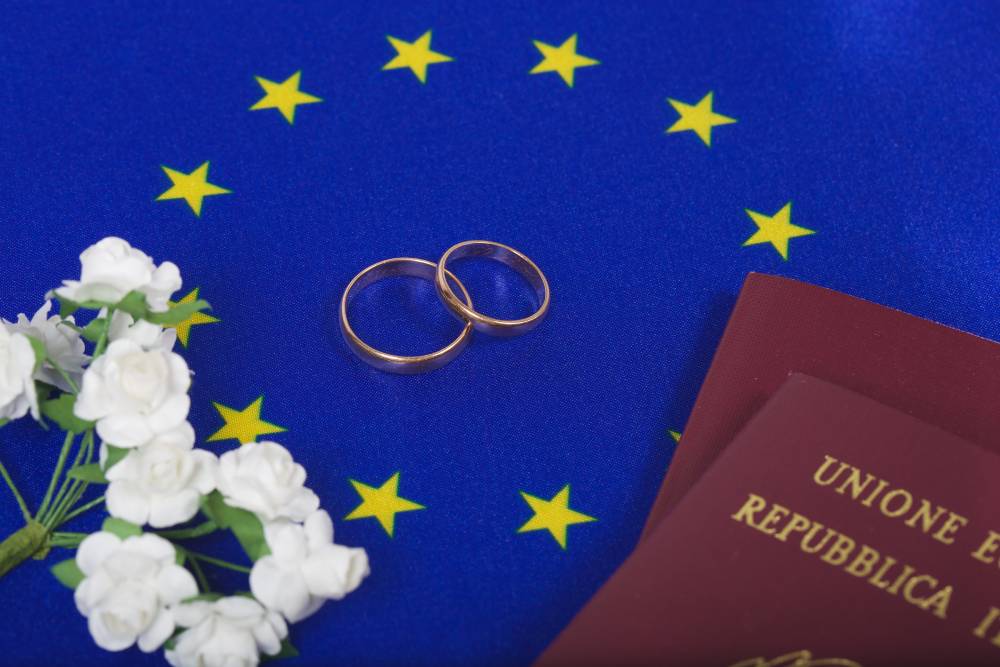How to obtain EU citizenship after marrying a European citizen
Marrying a citizen of the European Union opens up a legal path to citizenship in one of the EU countries. However, contrary to popular belief, this process is not always quick and automatic: in most cases, you will need to live in the marriage for a certain period of time, prove your integration, and pass a language exam. In 2025, EU countries continue to tighten criteria while maintaining clear rules for bona fide applicants. In this article, we will look at the general stages and requirements, as well as the specifics of the process in different EU countries.

The main stages of obtaining EU citizenship through marriage
The path to citizenship after marrying an EU citizen consists of several mandatory steps. Below are the key stages that almost all applicants go through, regardless of the country.
- Conclusion of an official marriage.
The marriage must be registered in accordance with the laws of the EU country. Some countries also recognize registered partnerships. - Obtaining a residence permit.
After marriage, a foreign spouse can apply for a residence permit on the basis of family reunification. This allows him/her to legally reside and, in some cases, work in the country. - Residing in the country for a specified period.
Most EU countries require you to live in the country for a certain number of years and be married before applying for citizenship. The period varies from 1 to 5 years depending on the country. - Passing exams and applying for citizenship.
It is necessary to confirm your knowledge of the language and integration into society by passing the appropriate tests. After that, you can apply for citizenship.
Required documents
To apply for citizenship through marriage, you will need to collect an extensive package of documents. Below is a list of the main documents that are most often requested by immigration authorities.
- Foreign passport and copy of a residence permit.
- Marriage certificate.
- Proof of cohabitation (rental agreement, utility bills, etc.).
- Certificate of no criminal record.
- Proof of financial solvency.
- Language proficiency certificate (level depends on the country).
- Documents confirming integration into society (participation in courses, volunteering, etc.).

Important points
The process of naturalization through marriage involves legal subtleties and risks that must be taken into account in advance. Below are the key caveats and features that every candidate should be aware of.
- Fictitious marriages. Many EU countries conduct checks to verify the authenticity of marriages. Fictitious marriages can lead to denial of citizenship and deportation.
- Dual citizenship. Not all EU countries recognize dual citizenship. Before applying, you should clarify whether you will need to renounce your previous citizenship.
- Divorce before obtaining citizenship. If you divorce before the naturalization process is complete, the procedure may be suspended or canceled.
Obtaining EU citizenship through marriage to an EU citizen is a legal but not “automatic” path. It requires time, transparency, proof of a genuine relationship, and a desire to integrate into a new society. To successfully complete the entire process, it is important to study the requirements of a particular country in advance, collect the necessary documents, and comply with immigration regulations.
If you are considering this option, it is worth consulting with a lawyer specializing in family immigration to avoid mistakes and speed up the procedure.
